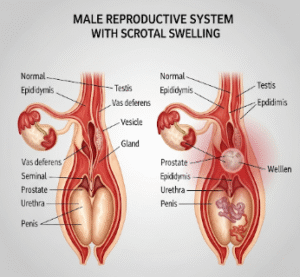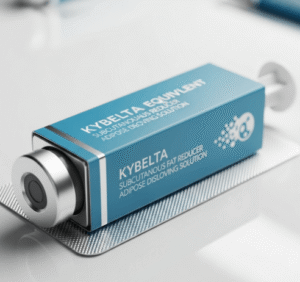Overview
Ketones in urine during pregnancy refers to the presence of ketone bodies—byproducts of fat metabolism—in a pregnant woman’s urine. Normally, the body uses glucose for energy, but when glucose is insufficient, it breaks down fat, producing ketones.
During pregnancy, ketonuria can be a warning sign of inadequate nutrition, dehydration, or gestational diabetes, and persistent ketones may indicate a need for closer medical monitoring. Korean obstetrics and gynecology clinics provide comprehensive care, including routine urine testing, blood glucose monitoring, nutritional counseling, and treatment for underlying conditions to ensure maternal and fetal health.
Key Facts
- ➔ Ketones in urine indicate that the body is using fat as an alternative energy source.
- ➔ Common during pregnancy due to morning sickness, fasting, or uncontrolled diabetes.
- ➔ Persistent ketonuria can affect fetal growth and development if untreated.
- ➔ Diagnosis is typically made via urine dipstick tests during prenatal check-ups.
- ➔ Proper hydration, diet, and monitoring can prevent complications.
What is Ketones in Urine During Pregnancy?
Ketones are chemical compounds produced when the body metabolizes fat instead of glucose. During pregnancy, the body’s energy demands increase, making ketone formation more likely if glucose is insufficient.
- ➔ Ketonuria: The presence of ketones in urine, detectable via dipstick tests or lab analysis.
- ➔ Physiological cause: Fasting, prolonged vomiting, or low carbohydrate intake may lead to transient ketonuria.
- ➔ Pathological cause: Conditions such as gestational diabetes, hyperemesis gravidarum, or uncontrolled pre-existing diabetes.
- ➔ Clinical significance: While mild, occasional ketonuria may be harmless, persistent ketones require evaluation to protect maternal and fetal health.
What Symptoms Are Related To
Ketones in urine may not always produce noticeable symptoms, but when present due to significant metabolic imbalance, they can be associated with:
- ➔ Fatigue or weakness
- ➔ Nausea or persistent vomiting
- ➔ Frequent urination or dehydration
- ➔ Fruity-smelling breath (due to acetone)
- ➔ Dizziness or lightheadedness
- ➔ Rapid weight loss
- ➔ Confusion or irritability in severe cases
Monitoring these symptoms is important, as they can indicate underlying conditions affecting both mother and baby.
What Causes / Possible Causes
Ketones in urine during pregnancy can result from:
- ➔ Morning sickness / hyperemesis gravidarum: Severe vomiting leads to dehydration and energy depletion.
- ➔ Gestational diabetes: Poor glucose utilization triggers fat metabolism and ketone production.
- ➔ Fasting or low-calorie diets: Insufficient carbohydrate intake forces the body to burn fat.
- ➔ Prolonged illness or infection: Increased energy demands can induce ketone formation.
- ➔ Uncontrolled pre-existing diabetes: Poor glucose regulation increases the risk of ketosis.
- ➔ Stress or strenuous activity: Increased metabolic needs may contribute to transient ketonuria.
Identifying the exact cause is essential for appropriate dietary adjustments and medical management.
When Should I See My Doctor
Consult a healthcare provider if you experience:
- ➔ Persistent ketones in urine over multiple prenatal visits
- ➔ Severe or ongoing vomiting leading to dehydration
- ➔ Fruity-smelling breath, dizziness, or fainting
- ➔ Signs of gestational diabetes (frequent urination, excessive thirst)
- ➔ Rapid weight loss or poor fetal growth detected on ultrasounds
- ➔ Pre-existing diabetes with poor glucose control
Early intervention can prevent maternal complications and ensure fetal well-being.
Care and Treatment
Managing ketones in urine during pregnancy focuses on hydration, nutrition, and addressing underlying causes:
- ➔ Hydration: Drink sufficient water and electrolyte-rich fluids to prevent dehydration.
- ➔ Balanced diet: Include frequent small meals rich in carbohydrates and protein to maintain energy levels.
- ➔ Medical management: For gestational diabetes, monitor blood glucose, follow a prescribed diet, and use insulin if needed.
- ➔ Vomiting management: Medications may be prescribed for hyperemesis gravidarum to reduce nausea.
- ➔ Regular monitoring: Urine ketone tests, blood glucose checks, and fetal growth assessments.
- ➔ Lifestyle adjustments: Avoid prolonged fasting and ensure adequate rest.
Consistent monitoring and care can reduce the risk of complications and promote a healthy pregnancy.
Treatment Options in Korea
Korean obstetrics and gynecology centers provide comprehensive care for ketones in urine during pregnancy:
- ➔ Prenatal testing: Routine urine dipstick tests and blood glucose monitoring.
- ➔ Nutritional counseling: Tailored meal plans to prevent ketonuria and maintain fetal growth.
- ➔ Medication therapy: Anti-nausea drugs for hyperemesis gravidarum or insulin therapy for gestational diabetes.
- ➔ Hydration therapy: Intravenous fluids for severe dehydration.
- ➔ Multidisciplinary care: Collaboration between obstetricians, endocrinologists, and nutritionists for optimal maternal and fetal health.
- ➔ Advanced monitoring: Ultrasound and non-stress tests to track fetal growth and well-being.
Leading hospitals such as Seoul National University Hospital, Asan Medical Center, and Samsung Medical Center provide advanced monitoring and personalized treatment to ensure safe pregnancy outcomes.
In Summary: Ketones in urine during pregnancy are a sign of altered metabolism, often due to fasting, hyperemesis, or diabetes. Early recognition, proper hydration, balanced nutrition, and specialist care in Korea can prevent complications, protect fetal health, and ensure a safe and healthy pregnancy.
- ➔ Key Takeaway: Persistent ketonuria should not be ignored during pregnancy.
- ➔ Action Point: Consult an obstetrician for monitoring, dietary guidance, and treatment if necessary.













